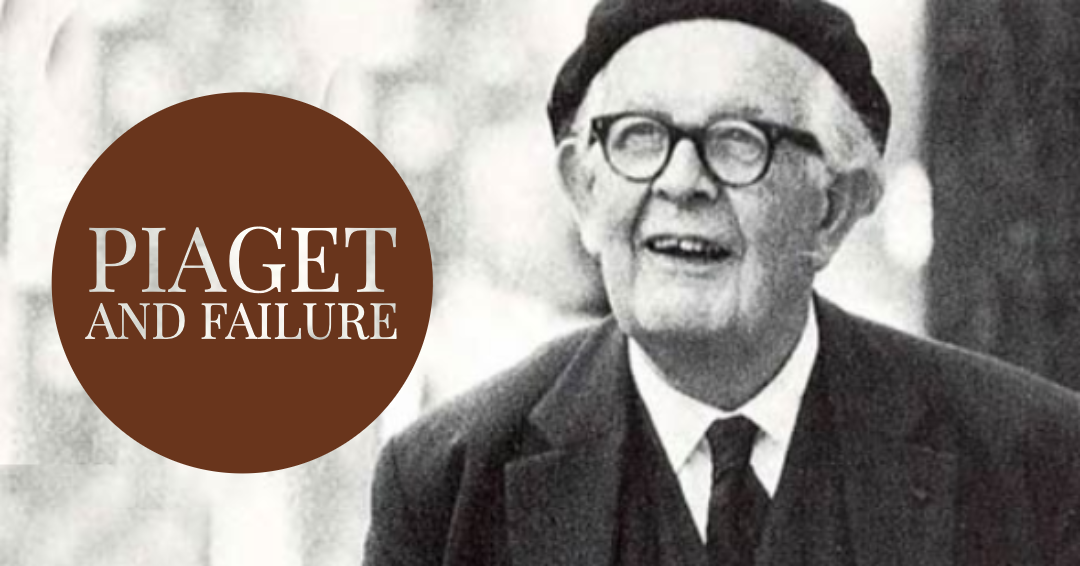
Contact Me
Most Recent Blog Posts
05/16/2024
ChatGPT and the Educational Pump Fake
05/25/2023
On Failure...
05/16/2023
An Ode to the GOAT (of Failure)
02/12/2021
Failure Judo: Take Time to Recover
07/31/2020
Failure Judo: Build Community
07/30/2020
Failure Judo: Discuss
07/29/2020
Failure Judo: Be Meta
07/28/2020
Failure Judo: Tinker
07/27/2020
Failure Judo: Practice
07/26/2020
Failure Judo: Reframe the Experience
07/25/2020
Failure Judo: Manage Loss
07/24/2020
Failure Judo: Take Incremental Steps
07/23/2020
Failure Judo: Fail on Furpose
07/22/2020
Failure Judo: Visualize Failure
07/21/2020
Failure Judo: 11 Tools to Make Failure Work for You.
07/20/2020
Perseverance Isn’t Enough.
02/05/2020
Why You Should Try New Things
01/09/2020
Piaget and Failure…
01/04/2020
The Value of Struggle
01/02/2020
The Fear of Failure
11/16/2019
Why Failure Beats Practice Alone
11/14/2019
Reclaiming Failure Tactic: Visualization
11/05/2019
Legos, the Process, and Failure
10/30/2019
Fail First, Succeed Later
10/25/2019
Failure... Like Riding a Bike
10/24/2019
Michael Jordan: Faiure
10/23/2019
Pole Vaulting - A Journey of Failure
10/18/2019
Piaget and Failure…
01/04/2020
What might he have said about it?
If we reach back into our college Psychology 1A class memories, we will probably recall the name Piaget. If we really paid attention, then we might remember that his work was very connected with human (mostly child) development and learning. If you got an A in the class, or perhaps if you majored in Psychology, you might even be able to conjure up a couple of terms related to his work.
In this case, the terms I’m referring to are assimilation and accommodation. Both of these terms relate to how we, as humans, develop and build our mental models of how the world works. If I can summarize, Piaget’s theory says that as we encounter information about our world, one of two things happens: Either the information fits with our current mental model, and it is assimilated into our framework, or it does not fit with our model in which case we accommodate the new information by altering our mental model to help it fit.
This makes me think of failure, and how we relate to it in our everyday lives. If we are mindful in our process, and we can process that failure effectively, then it yields valuable information that we can use to enhance our mental models. The problem is that many times, shame might get the better of us and we run away from the failure or sweep it under the rug. Other times the complexity surrounding the failure overwhelms us and we chalk it up to bad luck or we superstitiously focus on the wrong causal factor. Sometimes, we’re just not paying attention and we carry on with life, possibly repeating the same failure again and again. Whatever the reason, our lack of mindfulness in the face of failure causes us to miss an opportunity to grow the complexity of our mental models and raise our intelligence and abilities to a higher level.
The next time you’re faced with a failure, try a few of these ideas to make it a more useful experience:
- Slow down. Take a breath and think about things before moving on.
- Try to keep shame out of the equation. Shame is always trying to ruin our failures for us. Everyone fails.
- Try to acknowledge all of the factors that contributed to the failure – the ones you can control and the ones you can’t.
- Think through some of the alternate scenarios to what actually occurred. What could you have done differently, and how might it have changed the outcome?
- Think about what you will do the next time you find yourself in this situation. What could you differently? If the answer is honestly “nothing”, or this situation will never, ever happen again, move on. If you need to learn something, practice something, change something, then make plans to get those things done.
You can’t control everything. You can’t prevent every failure. Heck – you can’t even learn something from every failure. But every failure is worth unpacking. It’s worth reviewing in a mindful, deliberate way in search of the accommodation that we need to make in our mental model in order to learn, grow, and be more successful in the future.